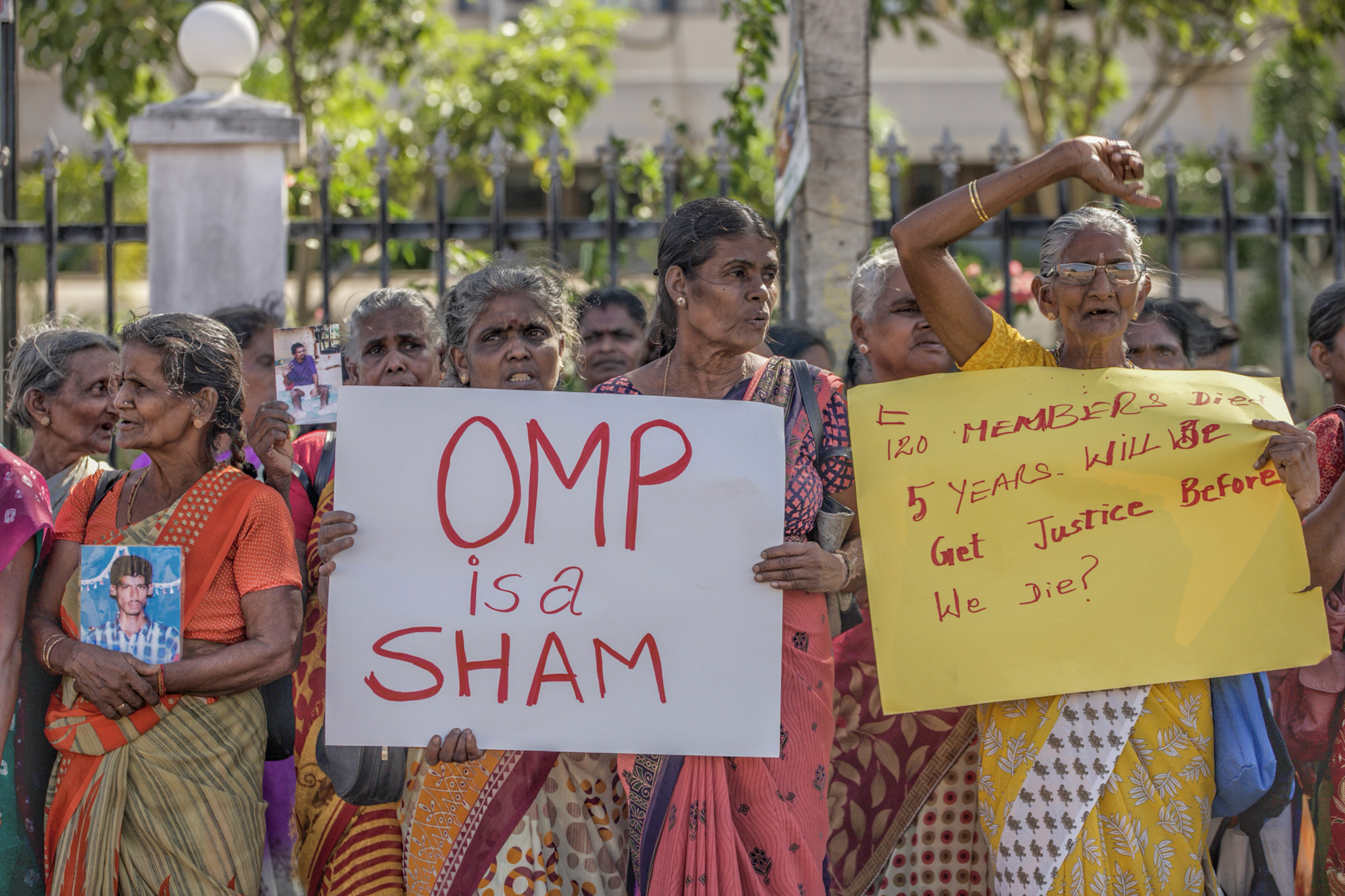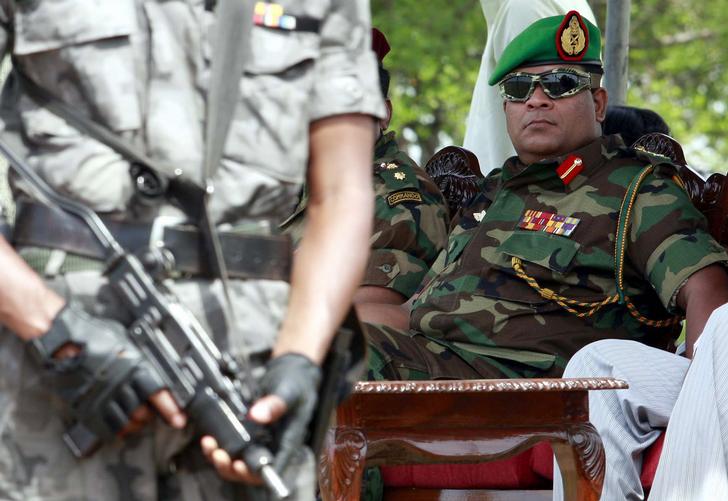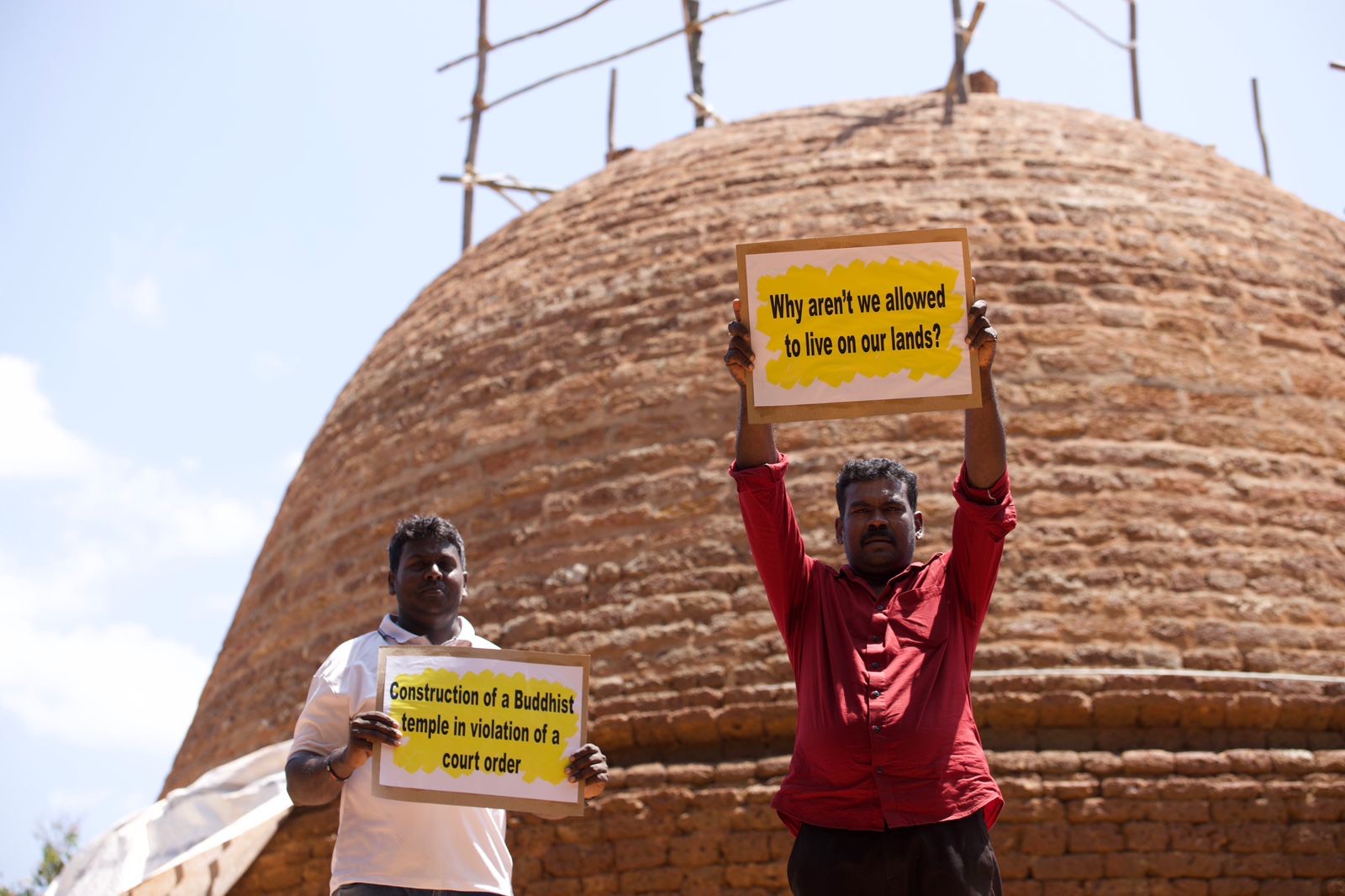Ahead of a debate in Britian’s parliament later today, the Sri Lankan High Commission sent a confidential briefing to lawmakers claiming that Colombo “remains committed to pursuing tangible progress in the protection of human rights and reconciliation”.
The briefing, marked as confidential, claimed that Sri Lanka had made progress on a range of areas across human rights, despite the continued arrest of Tamils, land grabs by the state and lack of accountability for mass atrocities.
‘We don't trust OMP’

The document started by claiming the much-criticised Office on Missing Persons (OMP) had “public trust”, despite widespread condemnation from Tamil families of the disappeared.
Earlier this year, the president of the Mullaitivu Association of Families of Disappeared, said the OMP had exerted pressure on them to accept compensation and death certificates for their abducted loved ones, instead of the truth and justice they have been demanding.
A 2022 report by the UN High Commissioner highlighted that the OMP "has not been able to trace a single disappeared person or clarify the fate of the disappeared in meaningful ways".
Tamils have instead repeatedly demanded an international accountability mechanism.
Read more:
'We need an international justice mechanism!' - Tamil families of the disappeared
‘Why is there an OMP office?’ – Tamil Families of the Disappeared protest in Mannar
Tamil families of disappeared in East slam Sri Lanka’s offer of compensation
Mannar’s President of Families of the Disappeared condemn OMP
War criminals promoted

The Sri Lankan document went on to claim it had carried out “several consultations” with regards to a “Truth and Reconciliation Mechanism”, which Tamil victims have repeatedly slammed as a move to delay accountability and justice for mass atrocities.
“The GoSL is committed to following an inclusive path in establishing the mechanism,” it claimed. “Thus, all relevant observations of the stakeholders will be given due consideration when the draft legislation for establishing the mechanism is prepared.”
Yet, almost 15 years since the massacre of tens of thousands of Tamil civilians by the Sri Lankan military, not a single person has been brought to account for the crimes committed.
Instead, senior government and military figures have been hailed as heroes and granted promotion – including as diplomats or within sports institutions.
Read more:
Continued arrests under the PTA
The briefing also claimed that Colombo had made “substantive amendments” to its draconian Prevention of Terrorism Act (PTA), that “for the first time in 43 years, making in line with international standards”.
Yet, in the last week alone, several Tamils continued to be detained under the PTA, which has been used for decades to detain, torture and even disappear Tamils. The arrests sparked international condemnation.
The government’s proposed anti-terror legislation to replace it was also criticised, including by UN Deputy High Commissioner for Human Rights, Nada Al-Nasif, in June this year. She said it “contained sweeping provisions that would limit freedom of expression, peaceful assembly, and even labour rights” and maintained her call for Sri Lanka “to implement fully a strict moratorium” on the PTA.
Read more:
International condemnation of Sri Lanka’s PTA arrests of Tamils
UN Human Rights Office raises ‘serious concerns’ over proposed Sri Lankan bills
Land grabs

“Presently, 92% of the lands occupied by the Security Forces and Police in 2009 have been released from time to time,” claimed the Sri Lankan briefing.
But the claim has seen little tangible outcome on the ground, where the Sri Lankan army continues to occupy vast swathes of land – including cemeteries – whilst the state continues to encroach on traditional Tamil land in the North-East. Meanwhile, Buddhist viharas and stupas continue to be constructed with the assisstance of the military and government across the Tamil North-East.
Read more:
Sri Lankan police crack down on Tamil farmers protesting against land grabs in Batticaloa
Despite the inaccuracies in the document, it did conclude however, by stating, “Sri Lanka has reiterated its categoric rejection of the external evidence gathering mechanism established following Resolution 46/1”.
Read the full briefing here.
